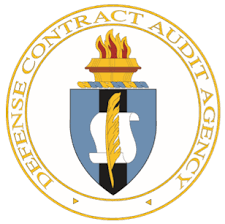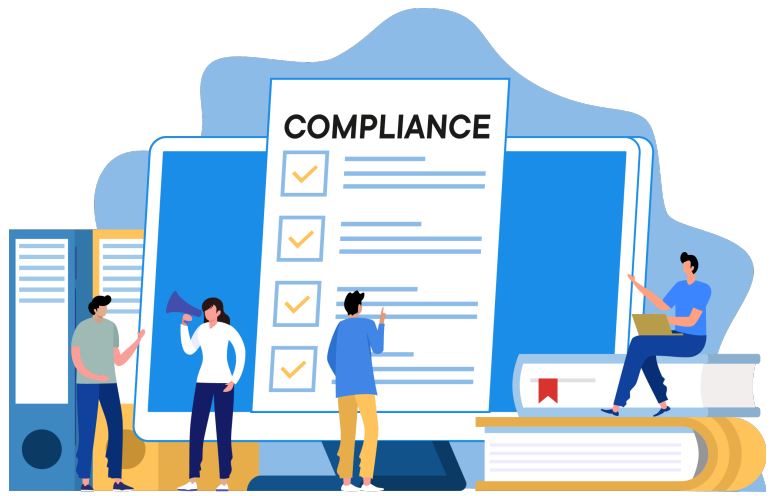Why Do Businesses Need Their Timekeeping to Be Compliant?
So, why should your business care about DCAA compliance? The short answer: is to keep your contracts and avoid hefty penalties. But there's more to it than just avoiding trouble. Here’s why it’s crucial.
Protecting Your Business
When your DCAA time tracking requirements are met, you’re safeguarding your business from audits that could result in contract terminations or worse—legal action. Non-compliance could mean paying back funds, civil and criminal penalties, or even losing the ability to bid on future government contracts.
Building Trust
Being DCAA compliant builds trust with your clients and the government. It shows that your business operates with integrity, follows regulations, and ensures that taxpayer money is used responsibly.
Streamlining Operations
Compliant timekeeping isn’t just about avoiding penalties; it’s also about creating a streamlined, efficient workflow. With the right processes in place, your team can focus more on delivering quality work and less on paperwork.
DCAA Timekeeping Requirements Checklist
Staying compliant with DCAA timekeeping requirements doesn’t have to be complicated, but it does require attention to detail. Here’s a checklist to help you stay on track:
1. Initial Setup and Documentation
Before you can start tracking time, you need to set up your system correctly. This involves creating policies and procedures that align with DCAA guidelines. Make sure every employee knows the importance of accurate timekeeping and what’s expected of them.
2. Time Entry Processes
Employees must enter their time daily. This is non-negotiable. The DCAA requires that time be recorded as it happens, not at the end of the week or month. This practice ensures that all hours worked are accurately captured and minimizes the risk of errors.
3. System and Software Requirements
Your timekeeping system should be robust, reliable, and, most importantly, DCAA-compliant. This means using software that can handle real-time entries, provide audit trails, and maintain secure records. ClockShark, for example, is designed with these needs in mind, making it easier for businesses to stay compliant. Check out our resources on clocking in labor laws and download a free timesheet template to get started.
4. Employee Training and Awareness
It’s not enough to have a system in place; your employees need to understand how to use it correctly. Regular training sessions are essential to keep everyone on the same page and ensure that time entries are accurate and timely.
5. Monitoring and Auditing Practices
Regular monitoring of timekeeping practices is essential. This includes routine audits to ensure that the system is being used correctly and that any discrepancies are identified and addressed promptly.
6. Record Keeping and Retention
The DCAA has strict requirements on how long you must keep records. Ensure that all timesheets, payroll records, and related documents are securely stored and easily accessible for a minimum of three years.
7. Compliance and Reporting
Your timekeeping system should be able to generate reports that demonstrate compliance with DCAA requirements. These reports should be readily available during an audit.
8. Handling Corrections and Adjustments
Mistakes happen, but how you handle them matters. Any changes to timesheets must be properly documented, with clear explanations for the adjustments. Unauthorized changes can lead to serious compliance issues.
9. Using GPS and Geofencing
For businesses with mobile or remote teams, GPS and geofencing features can help ensure that time entries are accurate and reflect the actual location of work performed. This can be particularly useful in proving compliance with DCAA requirements.
10. Communication and Feedback Mechanisms
Finally, maintain open lines of communication between management and employees. Encourage feedback on the timekeeping process and make adjustments as necessary to ensure smooth, compliant operations.
What are the Consequences of Not Adhering to DCAA Requirements?
Failing to comply with DCAA timekeeping requirements can have severe consequences, some of which could be catastrophic for your business. Here’s what you’re risking.
Voided or Terminated Contracts
If your timekeeping practices don’t hold up under scrutiny, the government can void or terminate your contracts. This means lost revenue and damaged reputation, not to mention the time and resources spent on projects that may never be completed.
Civil and Criminal Penalties
In some cases, non-compliance can lead to civil or even criminal penalties. This could involve hefty fines, legal battles, and in extreme cases, imprisonment for those found guilty of fraud or gross negligence.
Debarment
Perhaps the most severe consequence of non-compliance is debarment. This means your business would be prohibited from bidding on any future government contracts—a devastating blow for any company that relies on government work.


